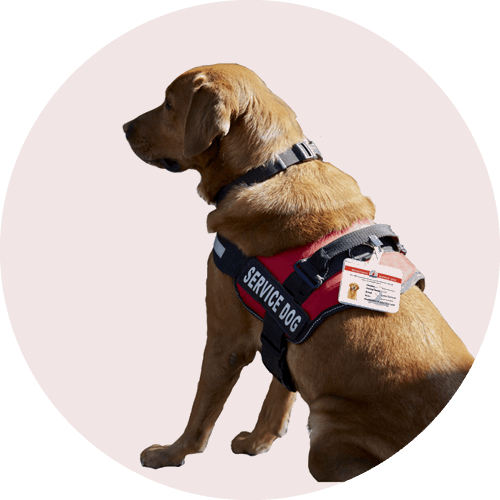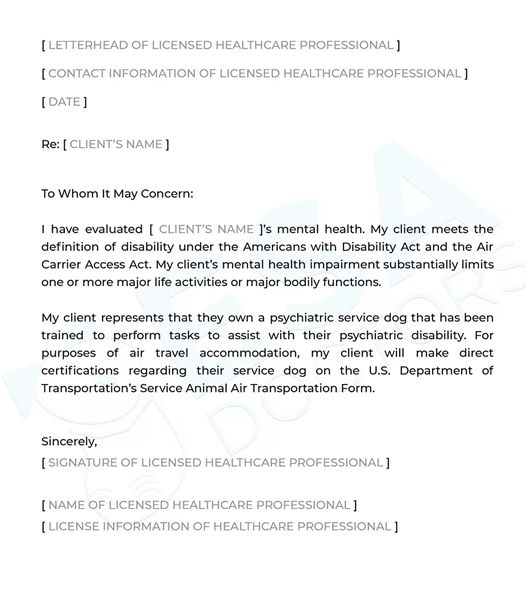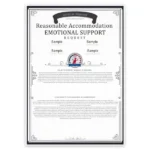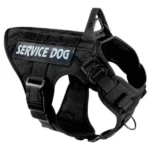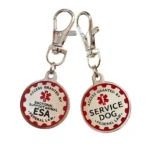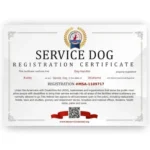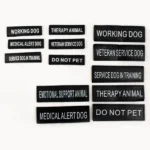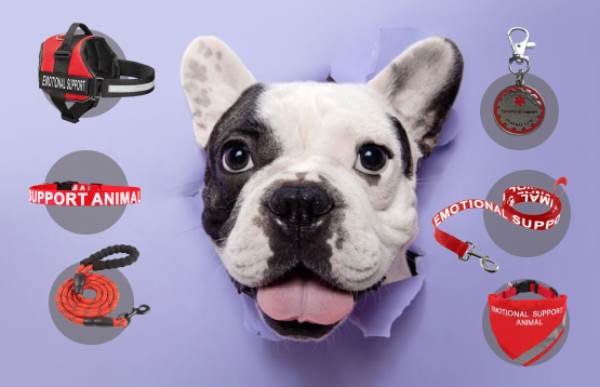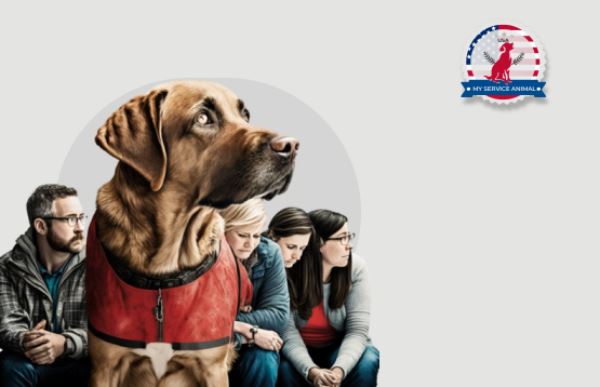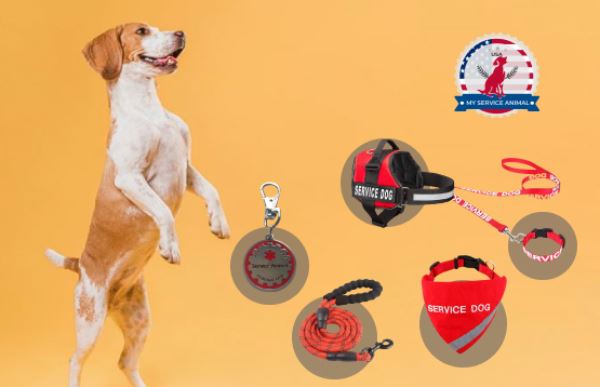A service dog doctor’s letter, also known as a service dog medical letter or service dog prescription, is a document issued by a licensed medical professional that confirms an individual’s need for a service dog. This letter is based on a comprehensive evaluation of the individual’s medical condition and their ability to benefit from the assistance of a service dog.
Assistant Animals Types
Service animals are specially trained creatures that help men with disabilities with daily household chores and contribute to their normal functioning despite their inabilities. Service animals begin to be trained at the age of three months. Initially, training is focused on developing the animal’s obedience and socialization skills. After that, the animals are tutored according to the type of dysfunction they will be working with. Each animal is taught separately to the needs of its keeper so that it can bring the greatest benefit to a person.
It is also significant to understand the distinction between service dogs, ESAs, and therapy animals. An emotional support animal is a companion animal. They are needed to raise the mood of their owners, bring moral bucking up, and consolation. ESAs help people with mental ailments by alleviating their symptoms or eliminating certain manifestations. For this, emotional support animals do not need special training and preparation.
Regarding to ada.gov:
Under the Americans with Disabilities Act (ADA), service animals are defined as dogs that are individually trained to do work or perform tasks for people with disabilities. Dogs whose sole function is to provide comfort or emotional support do not qualify as service animals under the ADA
Therapy animals support people who feel isolated from their family and friends. These creatures visit patients in hospitals and nursing homes, prisoners, and people who have survived disasters. They also work in libraries and schools. Therapy animals must have a sufficient level of grounding to interact with people, but they should not be with them around the clock.
Thus, service dogs are the broadest category of assistance animals. They can both fulfill physical tasks to meet the needs of their handlers and supply them with the demanded spiritual and psychological mainstay. All of this contributes to the faster adaptation and socialization of disabled humans.
Moreover, animals often become protectors of their holders because disabled persons belong to vulnerable social groups. Consequently, dogs have been taught how to protect their owners from ill wishes and are designed to avoid a possible deterioration in their owners’ health. There is an article about the difference between service and emotional support dogs where you can find more.
Exploring the Range of Service Animals’ Assistance
- Guide dogs: Trained to assist individuals with visual impairments, guiding them safely and protecting them from potential hazards.
- Hearing dogs: Skilled in recognizing and alerting their hearing-impaired or deaf handlers to various sounds, enhancing their awareness of the environment.
- Mobility assistance dogs: Provide physical support to individuals with mobility limitations, helping them with tasks like walking, balancing, or operating a wheelchair.
- Medical alert dogs: Trained to detect and respond to specific medical conditions such as diabetes or epilepsy, alerting their handlers or fetching necessary medication.
- Psychiatric service dogs: Assist individuals with mental illnesses, offering emotional support, calming techniques, and performing tasks to alleviate symptoms and promote well-being.
- Autism assistance dogs: Specifically trained to support individuals on the autism spectrum, helping with social interaction, sensory sensitivities, and emotional regulation.
- Seizure alert dogs: Alert their handlers before or during seizures, providing a warning or assistance during these episodes.
- Allergy detection dogs: Trained to detect and alert their handlers to allergens, helping individuals with severe allergies navigate potential risks.
- PTSD service dogs: Provide support to individuals with post-traumatic stress disorder (PTSD), offering comfort, grounding techniques, and assistance in coping with anxiety or panic attacks.
These service animals play critical roles in improving the independence, safety, and overall quality of life of individuals with disabilities or specific needs. Please learn more helpful roles of service animals in our topic of various types of service dogs.

Applicable Animals and their Breeds
Americans with Disabilities Act ruled that only specially trained dogs could be considered service animals. Because it is traditionally believed that dogs have greater learnability and are more people-oriented. Nevertheless, the law provides neither restrictions nor recommendations regarding the breeds suitable for the role of a service dog. You can rely on your own preferences, but we recommend that you also consider the general characteristics of the breed. By nature, the animal should be intelligent, non-aggressive, and have a calm temperament.
Most service dog providers can offer Labrador Retrievers, Golden Retrievers, German Shepherds, Bernese Mountain Dogs, Border Collies, or Bloodhounds as helpers. These large breeds of dogs are easy to train, have an active nature, interact well with people, and show protective qualities.
However, the list of service dogs is not limited to these breeds. You can also choose a smaller companion such as Poodle, Cavalier King Charles, or Terriers. Also, if you already have a dog, you can hire professional dog handlers to qualify your animal as a service one. If you want, please check-up our top 7 lists of Service Dog breeds.
How do I get a Doctor’s Letter for a Service Dog?
Obtaining a doctor’s letter for a service dog is an important step for individuals seeking to establish their need for a service animal. This letter serves as official documentation from a healthcare professional, confirming the individual’s disability or condition and recommending the use of a service dog as part of their treatment plan. The process of obtaining a doctor’s letter involves several key steps and considerations to ensure its validity and effectiveness. By understanding the process and requirements, individuals can navigate the necessary steps to obtain a doctor’s letter and pursue the benefits and rights that come with having a service dog.
What is a Service Dog Letter?
A doctor’s letter is a document signed by a licensed mental health professional that proves your mental infirmity and the positive effect of an animal on its remedy. This document is especially needed in cases where the disability is not visible so that you can provide proof of your special condition. Below, you can find a sample of a professionally crafted doctor’s letter that serves as a perfect template:
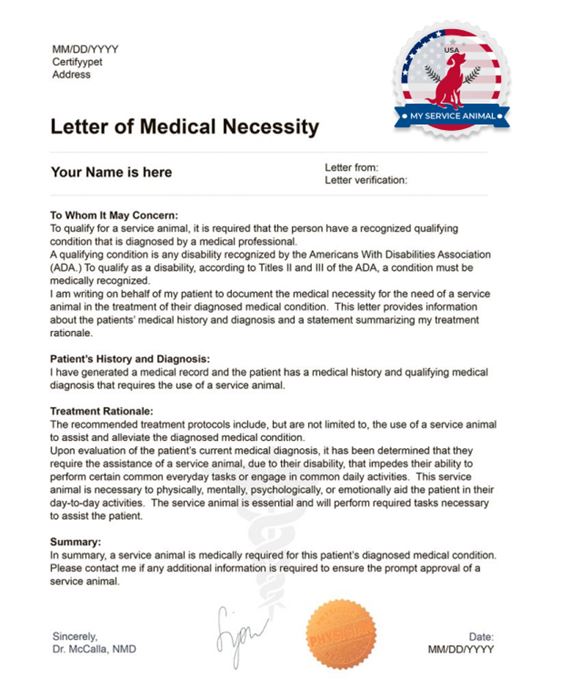
Here is what a service dog letter typically includes:
- Confirmation of Disability: The letter will state that you have a qualifying disability under the Americans with Disabilities Act (ADA) or relevant disability law. It may briefly describe your disability and its impact on your daily life.
- Recommendation for a Service Dog: The letter will recommend the use of a service dog as part of your treatment or management plan for your disability. It will explain how a service dog can assist you in mitigating the limitations imposed by your disability.
- Description of Tasks or Work: The letter may specify the tasks or work that the service dog is trained to perform to assist you with your disability. These tasks are directly related to your disability and are aimed at helping you maintain your independence, mobility, or safety.
- Professional Credentials: The letter will be issued and signed by a qualified healthcare professional, such as a doctor, psychiatrist, psychologist, or licensed mental health professional. It will include their contact information and professional credentials to ensure the legitimacy of the letter.
- Expiration Date: Service dog letters typically have an expiration date, which indicates the period of validity for the letter. The expiration date may vary depending on the healthcare professional or the specific regulations in your jurisdiction. It is important to note that some entities may require a service dog letter to be issued within a certain timeframe, such as within the past year.
It is essential to keep in mind that the specific content and requirements of a service dog letter may vary depending on the jurisdiction and the organization or establishment requesting the letter.
Who has the right to issue a doctor’s letter?
- Primary Care Physician: Your primary care physician or general practitioner is often the first point of contact for obtaining a doctor’s letter for a service dog. They are familiar with your medical history and can assess your condition to determine if a service dog would be beneficial for you.
- Specialist Doctors: Depending on your specific condition, you may need to consult with a specialist doctor such as a psychiatrist, psychologist, neurologist, or orthopedic specialist. These professionals can provide a more focused evaluation and recommendation for a service dog based on their expertise.
- Mental Health Professionals: Licensed mental health professionals, including therapists, counselors, and psychiatrists, can also issue a doctor’s letter for a service dog. They can assess your mental health condition and determine if a service dog would be beneficial for your specific needs.
- Disability Specialists: In some cases, disability specialists or rehabilitation professionals who work with individuals with disabilities can also provide a doctor’s letter. They have expertise in assessing functional limitations and can determine if a service dog would be a suitable accommodation.
- Telemedicine Providers: With the advancement of technology, telemedicine has become a convenient option for obtaining a doctor’s letter. Some healthcare providers offer virtual consultations and assessments, allowing you to connect with a qualified doctor remotely to discuss your condition and the need for a service dog.
It’s important to note that the doctor issuing the letter should have a professional relationship with you and be knowledgeable about your condition and treatment history. The doctor’s letter should be signed and include their contact information and professional credentials to ensure its authenticity and compliance with ADA requirements.
How to get a free service dog letter from a licensed medical professional
To obtain a service dog letter for free, you can reach out to non-profit organizations that specialize in providing assistance to individuals with disabilities. These organizations may offer financial aid or resources to help cover the cost of obtaining a service dog letter.
Additionally, some mental health clinics or universities with psychology programs may offer free or low-cost evaluations and documentation for service dogs. Contacting local resources such as disability support groups or community centers can provide information about any available programs or services in your area. In some cases, medical insurance may cover the cost of a service dog letter if it is deemed medically necessary. Contact your insurance provider to inquire about their coverage options and requirements.
It’s important to ensure that the specialist who issues the service dog letter is qualified and knowledgeable in the field of mental health. They should have a clear understanding of your specific mental disorder and the therapeutic benefits of having a service animal. The letter should include the specialist’s contact details, license number, and an expiration date to ensure its validity.
While it’s necessary to provide the service dog letter in certain situations, such as when seeking accommodation or traveling by plane, remember that you are not obligated to disclose your pet’s status to strangers or individuals who may discriminate against you. The letter serves as proof for authorized entities, and you have the right to privacy regarding your mental health and the need for a service dog.
How Does Someone Prove They Have a Service Dog?
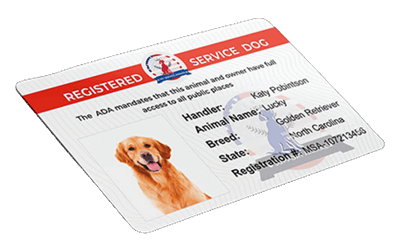
To assert an individual’s entitlement to have a service dog for assistance with their physical or mental impairment, it is advisable to possess an ADA Dog ID card that verifies the animal’s status. Despite being an optional accessory it offers significant benefits, especially for individuals whose impairments may not be immediately apparent. These accessories make it easier to identify the service animal in crowded environments, eliminating the constant need to prove the legitimacy of the animal’s presence in public. Many handlers choose to acquire these accessories to enhance recognition and facilitate smoother interactions in various settings.
Furthermore, service dogs are distinguished by their exemplary behavior. Through specialized training, service animals maintain a calm demeanor, remain in close proximity to their owner, and diligently follow their commands. It is important to note that, in most cases, proof of a service dog is not required, except in situations mandated by law, such as air travel or renting accommodation.
For more detailed information on registering a service dog, please refer to our comprehensive article on how to register a service dog.
